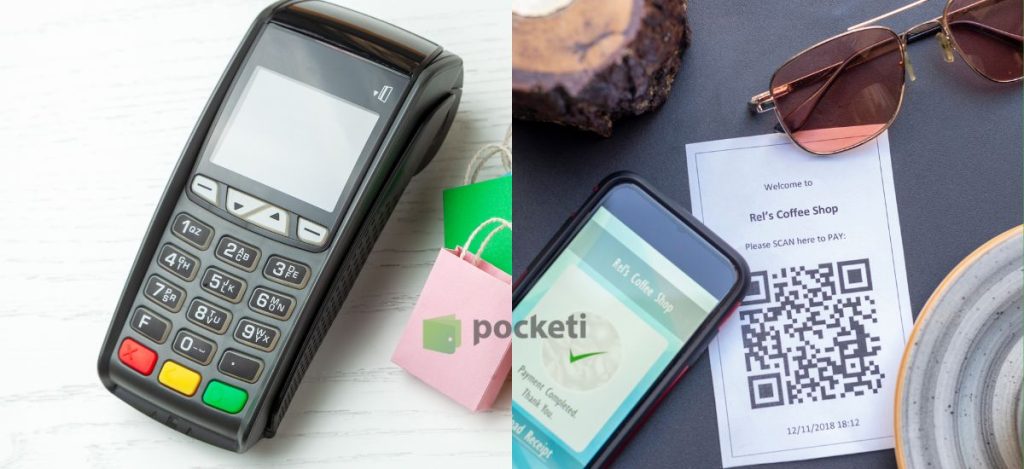
When it comes to selecting a point of sale (POS) system for small businesses, one crucial decision that business owners must make is whether to go with a POS app or a device. Both options have their unique advantages and drawbacks, so it’s essential to carefully evaluate which one is the best fit for your business.
POS apps are software programs that run on mobile devices such as smartphones and tablets, allowing businesses to process sales transactions, track inventory, and manage customer data. One of the primary benefits of using a POS app is cost-effectiveness. These apps require no initial investment in hardware and have lower ongoing maintenance and support costs compared to POS devices.
POS apps are also highly adaptable and can be used on various devices, which allows businesses to process transactions from anywhere and makes it easier to adjust to changing business needs. In addition, POS apps often offer greater customization options, allowing businesses to tailor the app to their specific needs and workflow.
Another advantage of POS apps is their ease of use. These apps are generally more user-friendly and require less training than POS devices, which can be beneficial for businesses with high turnover rates or those new to using POS systems. Additionally, POS apps are typically updated automatically, eliminating the need for businesses to manually update the software to stay current.
On the other hand, POS devices are dedicated hardware devices specifically designed for processing sales transactions. While these devices can be more expensive upfront and may require ongoing maintenance and support costs, they can offer certain benefits that may make them a better fit for some businesses. For example, POS devices may offer a more extensive set of features and functionality compared to POS apps and may be more reliable and durable in certain environments.
Here are some benefits of using a POS app over a POS device:
- Cost: POS apps are generally more cost-effective than POS devices, as they require no upfront investment in hardware and have lower ongoing maintenance and support costs.
- Flexibility: POS apps can be used on a variety of devices, including smartphones and tablets, which allows businesses to process transactions from anywhere and makes it easier to adapt to changing business needs.
- Customization: POS apps often offer greater customization, allowing businesses to tailor the app to their specific needs and workflow.
- Ease of use: POS apps are generally easier to use and require less training than POS devices, which can be beneficial for businesses with a high turnover rate or those that are new to using POS systems.
- Automatic updates: POS apps are typically updated automatically, which means that businesses don’t have to worry about manually updating the software to stay current.
Here are some benefits of using a POS device over a POS app:
- Features and functionality: POS devices may offer a more robust set of features and functionality compared to POS apps. For example, they may include advanced inventory management tools, customer relationship management (CRM) capabilities, and support for multiple payment types.
- Reliability and durability: POS devices are designed to be used in various environments, and may be more reliable and durable than POS apps, which rely on devices such as smartphones and tablets that can be prone to damage or malfunction.
- Security: POS devices may offer enhanced security features, such as encrypted data transmission and secure payment processing, which can be important for businesses that handle sensitive customer information or large amounts of cash.
- Professional appearance: Using a dedicated POS device may create a more professional appearance for a business, particularly in industries where customers expect a high level of service.
Ultimately, the choice between a POS app and a POS device will depend on the specific needs and budget of a business. Both options can be effective for processing sales transactions and managing a business, but POS apps tend to offer greater flexibility, customization, and cost-efficiency. Carefully weighing the pros and cons of each option can help businesses make an informed decision and choose the POS system that is the best fit for their needs.
Written by: The Pocketi Small Business Crew
About Pocketi
Pocketi app is a comprehensive payment and invoicing platform designed for small businesses in Ghana. It allows businesses to easily create and send invoices to customers via SMS, receive payments electronically, and even track orders and sales through an online portal. With no subscription, hidden, or monthly fees, our platform is a cost-effective way to streamline business operations and improve cash flow.
To learn more about Pocketi, download it for free, or contact our team, visit our website. Pocketi app is available for download on the App Store and Google Play. With our intuitive and user-friendly platform, small businesses in Ghana can take control of their financial future and achieve greater success.




